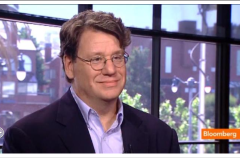FAQ's of E-Discovery
 Sunday, March 18, 2007 at 05:50PM
Sunday, March 18, 2007 at 05:50PM A concise summary of e-Discovery FAQs written by Judge Shira A. Scheindlin, S.D.N.Y., arising out of the Federal Rules 2006 e-Discovery Amendments. Judge Scheindlin is the author of the famous Zublake opinions that have provided guidance for many litigants on e-Discovery issues. I am pleased to say that I did have an Internet related case before Judge Scheindlin before she wrote the Zublake opinions. In a motion I argued before Judge Scheindlin regarding whether or not our "dot com" case should be heard in NY or California I acknowledged to her that both Courts were equally sophisticated on Internet and technology related legal issues - boy was I glad I said that. Judge Scheindlin's Zublake opinions have proven that there are more venues than the Northern District of California for groundbreaking technology related legal opinions.
